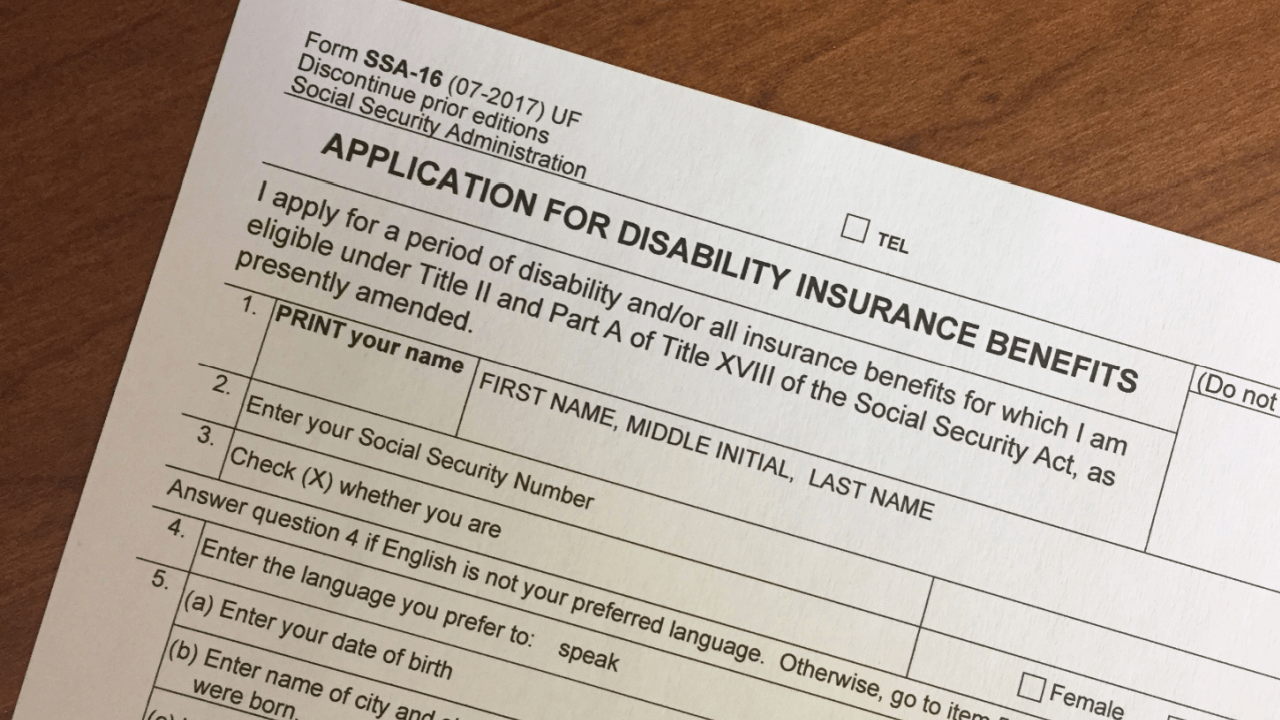
What Are the Most Approved Disabilities? Conditions That Commonly Qualify for SSDI
What Are the Most Approved Disabilities? Common Conditions That Qualify
If you’re applying for Social Security Disability Insurance (SSDI), it’s helpful to know: what are the most approved disabilities? While every case is unique, certain conditions are more frequently approved by the Social Security Administration (SSA) due to well-established medical criteria and clearer documentation.
SSA uses a set of medical listings known as the Blue Book to evaluate disabilities. When a condition aligns closely with these listings and severely limits a person’s ability to work, the SSA’s evaluation process may be more straightforward.
In this article, we’ll review the most frequently approved disabilities, why some conditions succeed more easily, and how you can strengthen your application if you have one of these impairments.
Why Certain Disabilities Lead to Higher SSDI Approval Rates
Certain disabilities tend to be approved more frequently for a few key reasons:
- Objective medical evidence: These conditions often have diagnostic tools like MRIs, X-rays, or lab tests that clearly show impairments.
- Clear link to work limitations: They severely restrict your ability to perform basic job tasks.
- Established SSA criteria: The SSA has detailed listings for these conditions, making evaluation more straightforward.
Examples of high-approval conditions include:
- Severe musculoskeletal disorders (e.g., degenerative disc disease, joint dysfunction)
- Mental health disorders (e.g., schizophrenia, bipolar disorder)
- Neurological conditions (e.g., multiple sclerosis, epilepsy)
- Aggressive cancers (especially those under the Compassionate Allowances list)
- Cardiovascular disorders (e.g., congestive heart failure)
How to Strengthen Your SSDI Application for Approved Disabilities
Even if you have one of the most commonly approved conditions, approval is not automatic. You must prove your condition prevents you from performing substantial gainful activity (SGA) consistently.
Here’s how to build a strong claim:
Submit Comprehensive Medical Evidence
SSA wants more than just a diagnosis. You need full records showing treatments, hospital visits, therapy, lab results, and functional limitations.
Obtain an RFC (Residual Functional Capacity) Form
An RFC assessment completed by your treating doctor explains what tasks you can and cannot perform (e.g., sitting, lifting, concentrating). This form is critical for many approvals.
Demonstrate Ongoing Treatment Compliance
Your records should show that you’ve sought continuous treatment, followed medical advice, and that despite these efforts, your condition still prevents you from working.
Work With a Disability Lawyer
Experienced SSDI attorneys how to frame your case to meet SSA definitions and procedural requirements.
What Are the Most Approved Disabilities? Final Thoughts
So, what are the most approved disabilities? Conditions like musculoskeletal disorders, severe mental health conditions, and aggressive cancers are often approved due to their clear impact on work ability and strong medical documentation.
Even if you have one of these commonly approved conditions, preparing a complete, well-documented application is essential.
SSA approvals are never automatic—you must show the full extent of your limitations.
Get Legal Support to Improve Your SSDI Approval Chances
Navigating the SSDI process alone can be stressful, especially if you’re unsure how to present your medical evidence. Legal Brand Marketing connects individuals with trusted disability lawyers who know exactly how to build strong cases that meet SSA’s high standards.
Whether you’re applying for the first time or appealing a denial, legal guidance can help ensure your application is properly prepared and submitted.
Contact us today and get matched with a disability lawyer who can review your situation and explain your legal options.
Frequently Asked Questions (FAQs)
1. Are musculoskeletal disorders the most approved disabilities?
Yes. Back injuries, degenerative disc disease, and joint dysfunctions are among the most frequently approved physical disabilities.
2. Can mental health conditions be easily approved for SSDI?
Severe mental health conditions like schizophrenia, bipolar disorder, and major depression often qualify, especially with strong psychiatric records.
3. Do cancer diagnoses qualify quickly for SSDI?
Certain aggressive cancers qualify for expedited processing through SSA’s Compassionate Allowances program, leading to faster approvals.
4. Is having a common disability enough to get approved?
No. You still need comprehensive medical evidence showing that your condition prevents you from working consistently.
5. How can a disability lawyer improve my chances?
Lawyers organize your evidence to match SSA criteria, help complete forms like the RFC, and avoid common errors that lead to denials.
Key Takeaways
- Musculoskeletal, mental health, cancer, and neurological disorders often top SSDI approval lists.
- Objective medical evidence is critical for faster, easier approvals.
- Even common disabilities require complete and ongoing documentation.
- Legal support can assist with preparing and presenting SSDI applications for different types of conditions.
- Legal Brand Marketing connects you with experienced lawyers familiar with SSDI rules and procedures.


